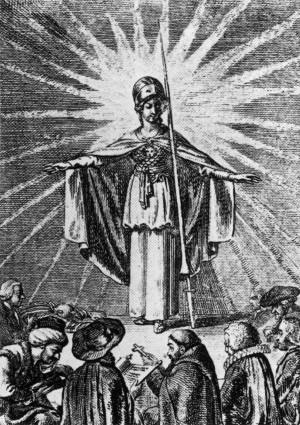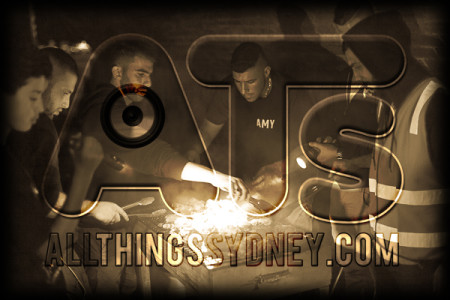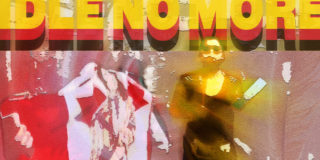 The German artist Daniel Nikolaus Chodwiecki was renowned for his etchings. Born in an age in which critical thought was encouraged and the power of hierarchical institutions such as the Catholic Church were questioned, Chodwiecki expressed his own appreciation of “toleration” through his work “Minerva als Symbol der Toleranz”.
The German artist Daniel Nikolaus Chodwiecki was renowned for his etchings. Born in an age in which critical thought was encouraged and the power of hierarchical institutions such as the Catholic Church were questioned, Chodwiecki expressed his own appreciation of “toleration” through his work “Minerva als Symbol der Toleranz”.
Toleration is not quite the same as tolerance. The former requires only that one allow that which he or she disapproves or disagrees of; tolerance requires acceptance with the suspension of judgment. Originally, toleration applied only to religious difference, but more modern issues including transgender, homosexuality and political difference can now be included in the discussion of toleration versus tolerance. Toleration is constantly confronted by the conventions that bind people of various nations when they confront issues of human rights.
Chodwiecki’s depiction of Minerva, the ancient Roman goddess of wisdom, gathering people of all religions beneath her benevolence acknowledges the progression of beliefs from polytheism to monotheism and perhaps the origins of each in customs that are older than any of the individual ways of worship and belief than many people may realize. Perhaps I read too much into the artist’s work, but it is what I see in his beautiful etching, the sun shining from behind seemingly giving literal demonstration of the effect of the Enlightenment.
The past year has seen the emergence of those who would oppress all forms of both toleration and tolerance, reasoning discouraged or warped, science suppressed and skepticism treated as heresy. Such limitation of thought refuses all acts of compassion and kindness and treats difference as something that is wrong. The result is the dehumanization of others, with one group believing that they are somehow superior to their neighbour.

It is a struggle to maintain balanced thought in the face of the cruelty that such dogma allows. Blind allegiance to numerous dogma has been the basis of innumerable horrors that have left scarred pages throughout this planet’s history. When feeling threatened by dogma that refuses introspection and self-examination, it often seems easier to retreat into the comfort zones of that which we know. Denigration of the Other in our society can seem more justified than enquiry about what has driven them into the arms of foreign and seemingly unforgiving beliefs. Society, it seems, thrives on the duality of good and evil and man all too frequently tars entire groups with a single brush.
That’s why last night, Christmas night, I stepped outside my own comfort zone to spend a little time with the Australian Muslim Youth (AMY). In truth, it was not a terribly large step; I count among my friends and colleagues several followers several followers of Islam. I was however meeting a group of people I did not know, after dark in a largely deserted Sydney park – intimidating if only from the point of view of being an outsider in their group. Yet, this group of young people, who prepared a meal for homeless people in Sydney’s Wentworth Park and wished them Merry Christmas are the perfect example of acceptance. These young people see themselves as Australians. One young woman’s aim is to play representative soccer for Sydney Women’s Football Club. She is proud of who she is and where she comes from, as are all the men and women I met last night.
AMY make efforts to offer support to homeless people in Sydney on a regular basis. Their acts of kindness and companionship fly in the face of the stereotypical depictions of much of the media of late. These young people are the face of what we should all be aiming for – inclusion, regardless of race, colour, creed or gender. All the homeless who visited Wentworth Park last night were made entirely welcome and heartily fed, as were both I and Tristan, also there to observe the evening’s activities. What’s more, acknowledging the importance of Christmas to the non-Muslims, they made a point of wishing us a Merry Christmas; I was even given a small gift of a candle in a very pretty glass lamp by one of the ladies. What does it cost for us to acknowledge the celebrations of the many others in our community? With this simple act, we draw a little closer together and set the foundations for inclusion.
Whether you ascribe to the tenets of a particular religion or not, remembering the days that are special to others, be they a birthday, wedding or religious feast, forces us to accept the human-ness of each soul. These days are the spice that flavour our lives and form the anchors to our being. As Tevye from one of my favourite plays “Fiddler on the Roof” would say, they are the traditions that give our lives meaning, that mark off the days of our calendar. There is no need to tear them away for each other – the world is so much richer for their diversity.


